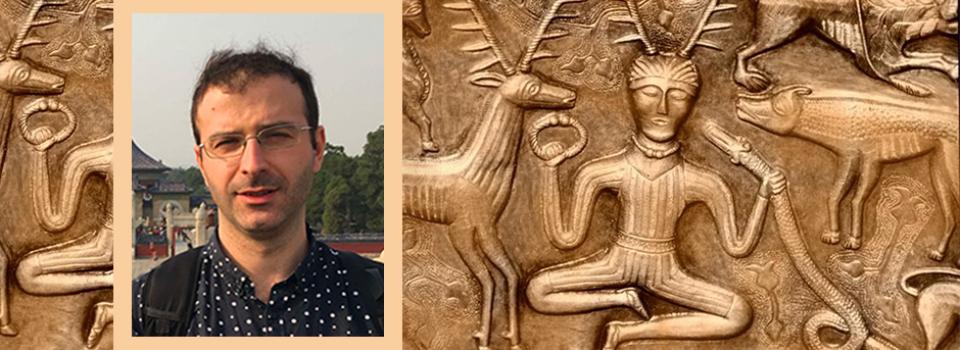
Topic:
Narrative, Women and Inner Self in Early India: Looking through the Upanishads
Date & Time:
Tuesday, February 28, 2017 - 17:00 to 18:30
Speaker:
Paolo Visigalli
Location:
Room 1250, 1555 Century Avenue, Pudong New Area, Shanghai
Composed orally in Sanskrit between about 700 and 300 BCE, the Upanishads are among the best-known and most important monuments of ancient India. In them we first meet religious ideas about rebirth, selfhood and immortality that have since informed the lives of billions of Hindus. The Upanishadic speculations are also commonly regarded as marking the birth of philosophy in India. These complex, multi-layered and fascinating documents have meant radically different things to their readers, both Indians and non-Indians, and have generated a myriad of (often conflicting) interpretations throughout the centuries.
In this talk, Professor Paolo Visigalli will introduce Upanishadic thought through consideration of one of its top thinkers, Yājñavalkya. He will present two (almost) identical episodes describing Yājñavalkya’s last conversation with his wife Maitreyī about selfhood and immortality found in the thinker's recorded teachings. With a close look the two differing versions of the conversation, Professor Visigalli will illuminate the intersections between women’s role in ancient India and Upanishadic narrative strategies.
A native Italian, Paolo Visigalli is currently teaching at Shanghai Normal University. He holds a PhD in South Asian Studies from the University of Cambridge. Paolo’s work explores the intersection between language ideologies, hermeneutic techniques and the production and renegotiation of textual meaning. His main research languages are Sanskrit and Pali (and a bit of Chinese), and his articles have appeared in Philosophy East and West, Journal of Indian Philosophy and Indo-Iranian Journal. His current project is a monograph on etymological theories and practices in Hindu and Buddhist texts, in Sanskrit, Pali and Chinese.
Introduction and moderation of the Q&A by Assistant Professor Armin Selbitschka.
Location & Details:
To our visitors
- RSVP may be required for this event. Please check event details
- Visitors will need to present a photo ID at the entrance
- There is no public parking on campus
- Entrance only through the South Lobby (1555 Century Avenue)
- Taxi card
Metro: Century Avenue Station, Metro Lines 2/4/6/9 Exit 6 in location B
Bus: Century Avenue at Pudian Road, Bus Lines 169/987


